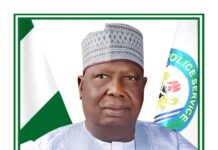Prof. Wumi Iledare, Professor of Petroleum Economics, says comparing the prices of Premium Motor Spirit (PMS), also known as petrol, with other countries will help to educate Nigerians on deregulation of the sector.
Iledare made this known in an interview with the News Agency of Nigeria( NAN) while reacting to President Muhammadu Buhari’s Independence day speech in Abuja on Thursday.
Buhari in his speech, explained why petroleum prices in the country needed to be adjusted for economic development
Buhari said: “Our government is grappling with the dual challenge of saving lives and livelihoods in face of drastically reduced resources.
” In this regard, sustaining the level of petroleum prices is no longer possible.
” In the circumstances, a responsible government must face realities and take tough decisions.
” Petroleum prices in Nigeria are to be adjusted. We sell now at N161 per litre. A comparison with our neighbours will illustrate the point, Chad which is an oil producing country charges N362 per litre Niger, also sells 1 litre at N346.
” In Ghana, another oil producing country, petroleum pump price is N326 per litre. Egypt charges N211 per litre. Saudi Arabia charges N168 per litre.
“It makes no sense for oil to be cheaper in Nigeria than in Saudi Arabia, Buhari says.
Iledare said that the president had stated the obvious, adding that people should not bring up sentiment about it.
“I disagree with any sentiment. We cannot pick and chose even as we adapt global best practice keeping local context in view.
“Don’t we live American life in Nigeria and invoke such expectations in our demands, yet the governance structure to meet the living standard demanded are frustrated.
“Let us for example look at the price of PMS of the same grade in ECOWAS. Nigeria is the cheapest and the second cheapest is 100 Naira equivalent more than Nigeria.”
He said that experts in 2015 advised government on deregulation of the downstream sector but it did not heed to it, noting that it was better now than never.
“Oil is a global commodity that connects and affects global economy and we must ensure global best practices in Nigeria.” (NAN




